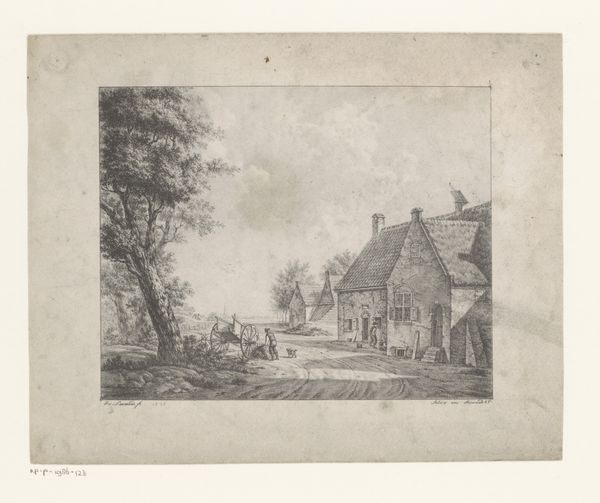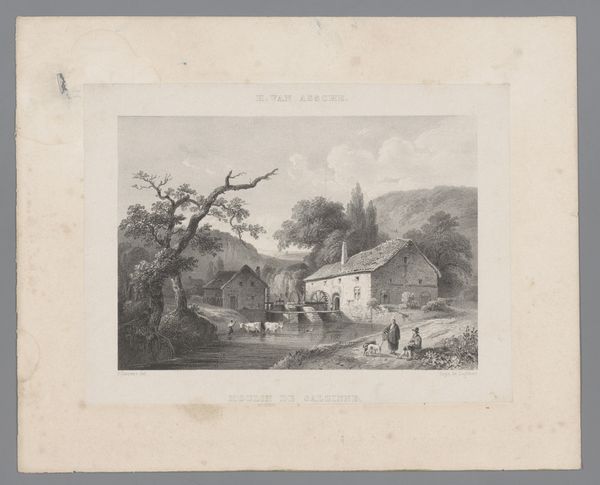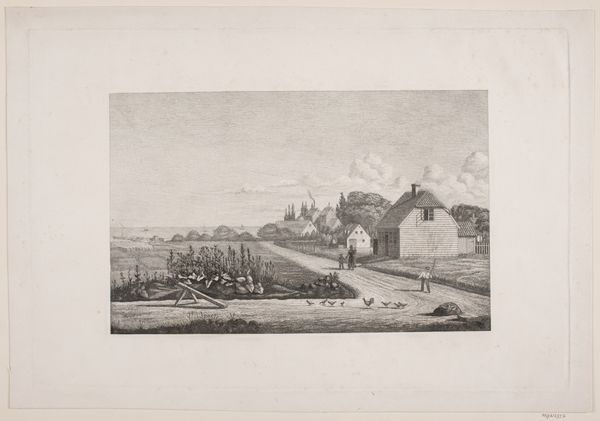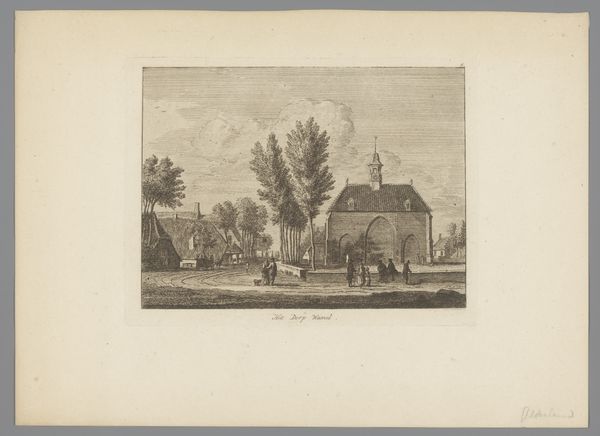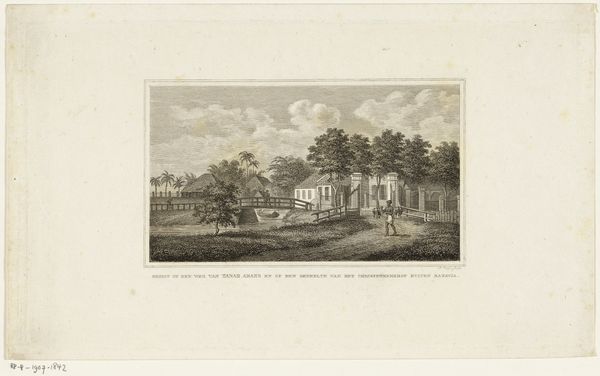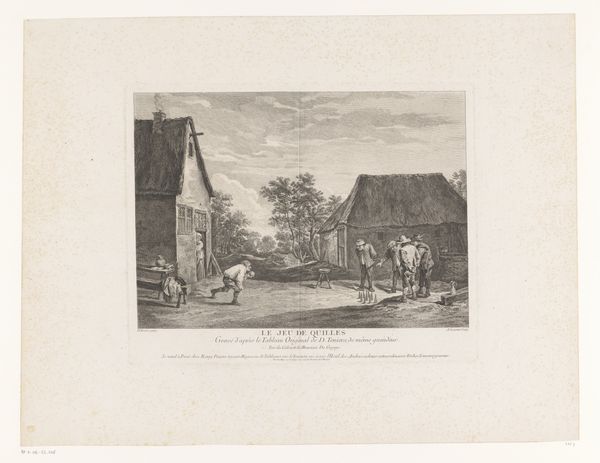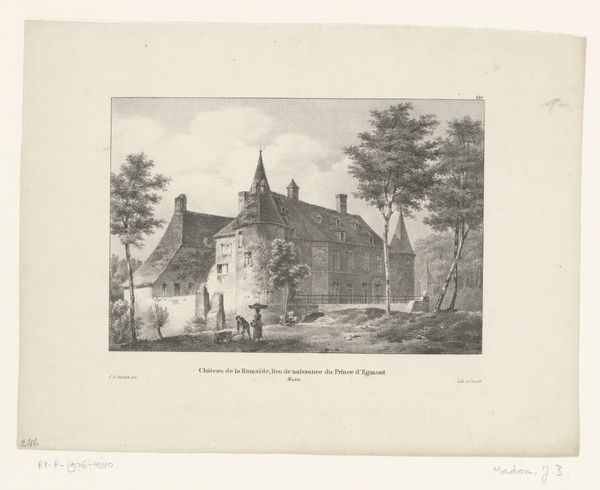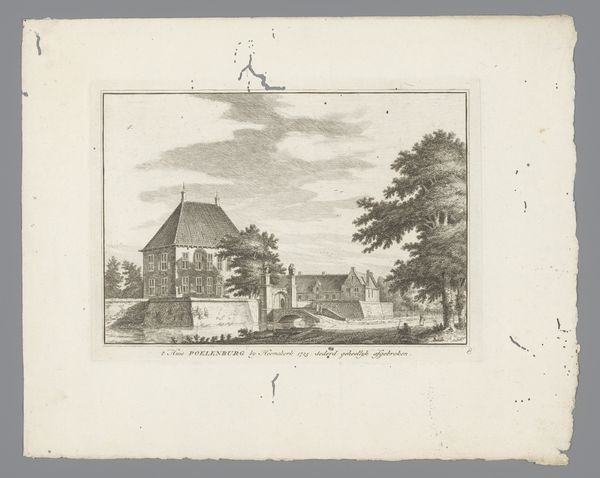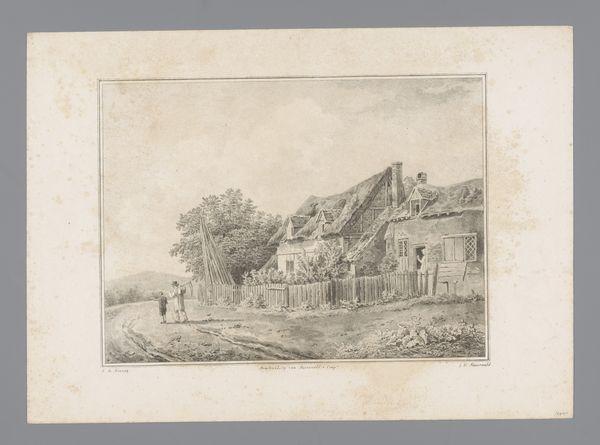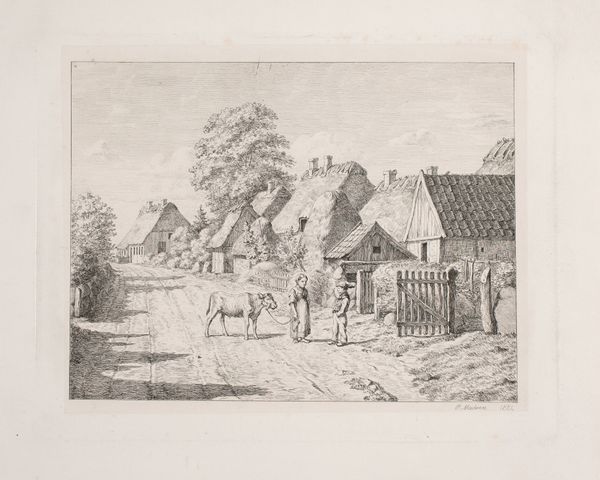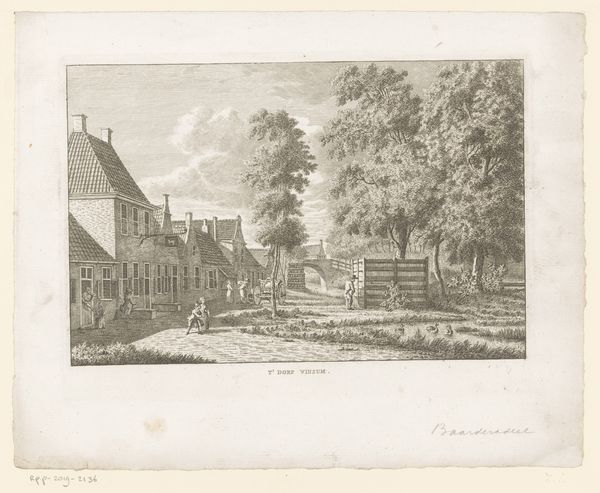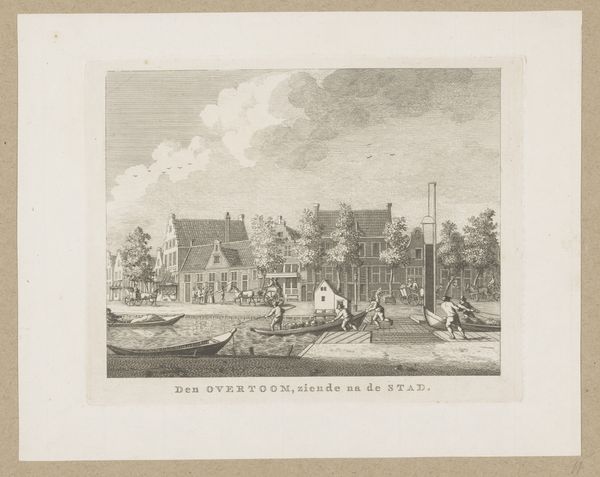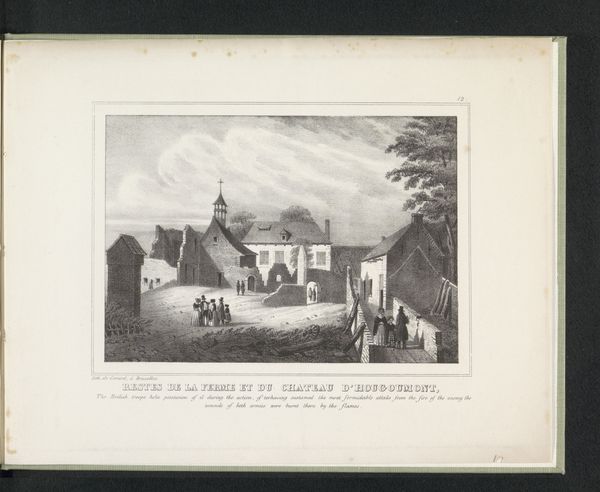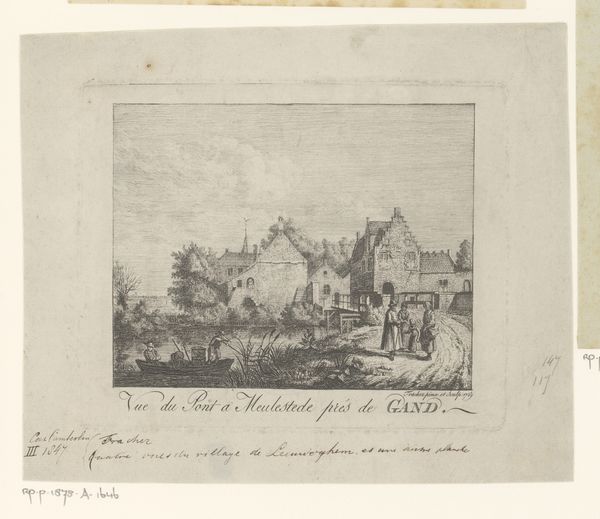
drawing, print, paper, engraving
#
drawing
#
dutch-golden-age
# print
#
landscape
#
paper
#
genre-painting
#
engraving
#
realism
Dimensions: height 224 mm, width 285 mm
Copyright: Rijks Museum: Open Domain
Editor: Here we have "Gezicht op logement Het Rode Hert in Amerongen," or "View of the Het Rode Hert Inn in Amerongen," an engraving by Johannes Paulus Houtman, dating from around 1829-1830. It has a quiet, rural feel, almost nostalgic. How do you interpret this work, seeing it today? Curator: This image, while seemingly simple, is a powerful statement about Dutch identity and social structure in the early 19th century. It depicts not just a building, but a central node in the community – an inn. How does this resonate with contemporary discussions about public space and who has access to it? Editor: I hadn't thought about it like that. It’s easy to just see a quaint historical scene. Curator: Exactly. Inns weren't just for travelers. They were places for locals to gather, debate, and exchange ideas, even organize politically. This image captures a moment of apparent tranquility, but what power dynamics might be at play? Who is present in this scene, and who is conspicuously absent? Think about gender, class, and perhaps even hidden political allegiances in a post-Napoleonic Netherlands. Editor: So you’re saying the artist might be subtly commenting on social inequalities through this seemingly neutral depiction of an inn? Curator: Precisely. The ‘Rode Hert’ or ‘Red Deer’ could itself be a symbol with loaded meanings. The composition itself—the way the road leads your eye—encourages a particular reading, directing our gaze to specific details and possibly away from others. Does that resonate? Editor: It does now that you point it out. I'll definitely look at these kinds of scenes with a new perspective. Thanks! Curator: And thank you. It's important we keep questioning what we see and whose stories are being told through these images.
Comments
No comments
Be the first to comment and join the conversation on the ultimate creative platform.
